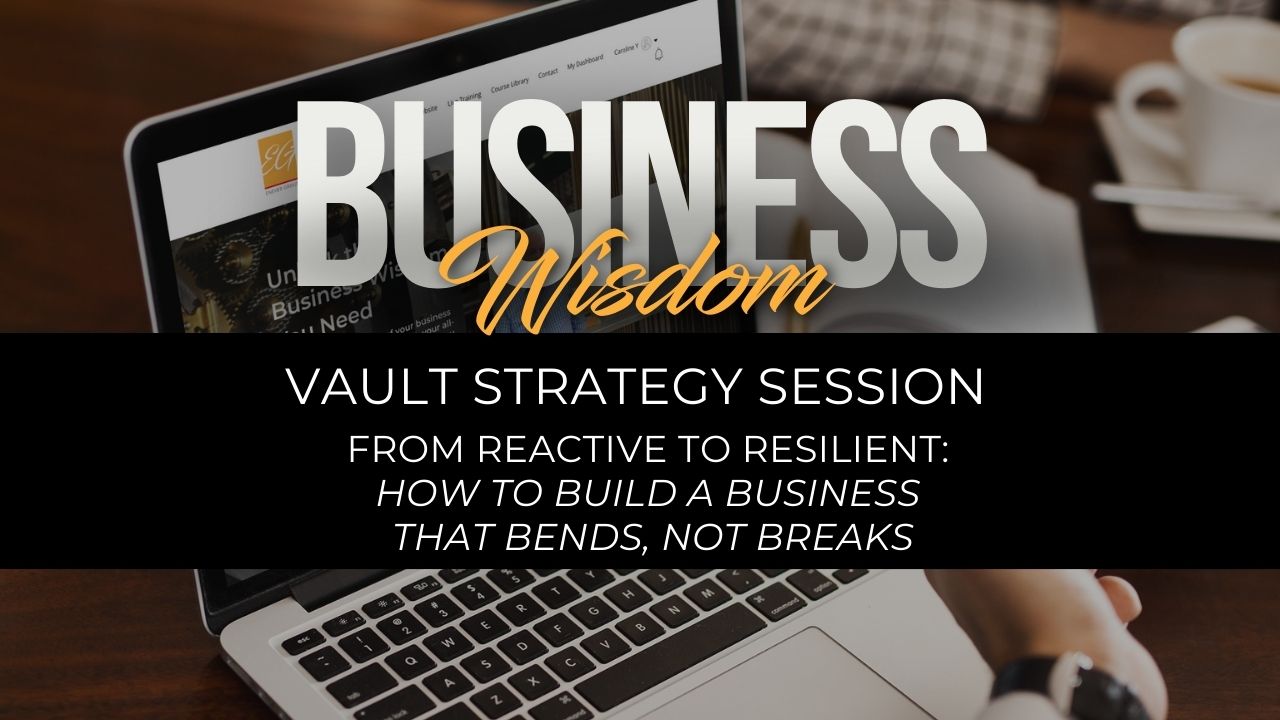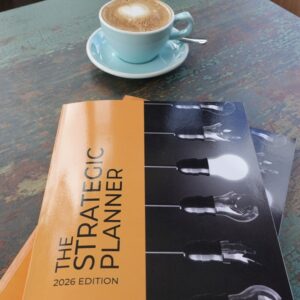In business, planning is all about creating a clear path to future success. It ensures your business can identify opportunity, mitigate risk and remain agile. But when it comes to planning, where do you begin? Here, we take a dive dive into business planning, including:
- Why every business needs a plan
- What to consider when planning your business future
- How to use your plan to achieve your business goals
The perks of forward planning
Forward planning allows your business to run with vigour, enthusiasm, and purpose to achieve your goals.
Without a plan, businesses risk stagnation, missed opportunities, and unexpected challenges. However, with a plan, businesses remain agile, focused, and resilient.
The Importance of Planning
Some business owners say, “I don’t need a plan; I’m doing okay”.
If “okay” is your benchmark, that’s fine. But if you aim for more, a well-crafted plan reduces stress and increases success.
A plan provides clarity, keeps you on track, and helps you achieve long-term objectives with confidence.
What to Include in Your Plan
A business plan should cover various aspects to ensure sustainability and growth. These include:
- Expansion strategies: Hiring staff, relocating, or adding new services.
- Financial management: Efficient resource allocation and budgeting.
- Risk mitigation: Identifying and preparing for potential threats.
- Market adaptability: Staying ahead of industry changes and competition.
- Goal setting: Establishing a clear roadmap to success with measurable milestones.
Planning ahead prevents surprises and allows for proactive decision-making rather than reactive scrambling.
Establishing Goals and Activities
To create an effective plan, start with a SWOT analysis to identify:
- Strengths – What advantages does your business have?
- Weaknesses – Where can improvements be made?
- Opportunities – What trends or market gaps can you capitalise on?
- Threats – What external factors could impact your business?
Once you have a clear understanding of these elements, set goals using the SMART framework:
- Specific: Clearly define what you want to achieve.
- Measurable: Set criteria to track progress.
- Attainable: Ensure the goal is realistic and achievable.
- Relevant: Align goals with your overall business vision.
- Time-bound: Set deadlines to maintain focus and accountability.
With clear goals, identify necessary activities. Consider:
- Who will complete them?
- When and how will they be executed?
- What resources are required?
Focusing on the right activities ensures consistent progress and better results.
Breaking Down Goals
Long-term goals can feel overwhelming, so breaking them down makes execution more manageable. Organise your plan into:
- Quarterly objectives: High-level goals for the next three months.
- Monthly tasks: Specific initiatives aligned with quarterly objectives.
- Weekly steps: Focused activities to stay on track.
- Daily actions: Small, consistent efforts that drive long-term success.
By focusing on daily tasks, your ultimate goal feels less daunting and more achievable.
Staying Alert and Documenting Your Plan
Markets evolve rapidly, and new competitors emerge constantly. Staying aware and adaptable ensures you can seize opportunities and mitigate threats effectively.
Why document your plan?
- A written plan provides clarity and direction.
- It prevents frequent shifts caused by daily distractions or external pressures.
- It ensures alignment between short-term actions and long-term strategy.
If your current plan conflicts with new objectives, adjust accordingly to maintain alignment and continuity.
Final Thoughts
Forward planning is essential for business success. It allows you to navigate uncertainties, capitalise on opportunities, and achieve sustainable growth. To maximise your planning efforts:
- Set SMART goals that are clear and achievable.
- Create a strategic roadmap with measurable milestones.
- Continuously assess your environment and adapt as needed.
- Document your plan for accountability and reference.
Highlights (timestamps)
- 00:00 Introduction to Business Planning
- 00:25 The Importance of Having a Plan
- 01:27 Key Elements of a Business Plan
- 02:23 Setting and Achieving Goals
- 03:00 The Role of SWOT Analysis
- 03:32 Aligning Business and Personal Goals
- 05:11 Focusing on Activities Over Outcomes
- 05:51 Breaking Down Long-Term Goals
- 06:55 Staying Agile and Aware
- 08:06 Documenting Your Plan
- 09:32 Next Steps








